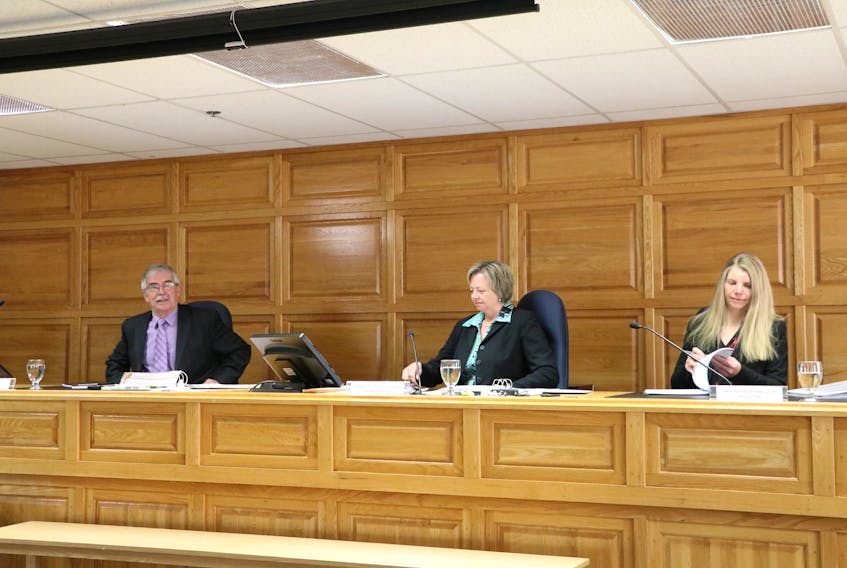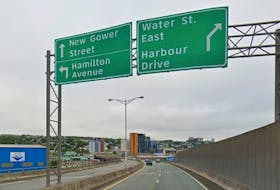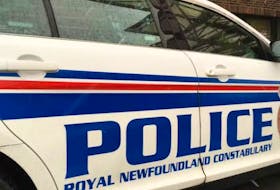The Public Utilities Board (PUB) may not be making a specific recommendation on whether a minor injury cap should be implemented in the auto insurance industry in Newfoundland and Labrador, but the minister of Service NL is expecting the PUB’s review to be a major source of information on which to base an informed decision on what should be done to knock back ever-increasing auto insurance premiums.
A statement to The Telegram from Minister Sherry Gambin-Walsh’s office states that: “As announced in August 2017, Phase 2 of the process includes a review of the existing private passenger automobile insurance products offered in Newfoundland and Labrador, as well as recommendations for possible options to contain costs. The PUB, along with the people of the province, will offer recommendations throughout the process on a number of options to help government make an informed decision on how to lower rates that benefit consumers and help bring stability to the automobile insurance industry.”
At the start of the PUB public hearings on auto insurance two weeks ago, PUB chair Darlene Whalen said the board would not make specific recommendations on a minor injury cap when it files its report to the provincial government in the fall.
That statement took some of those attending the hearings by surprise.
Jerome Kennedy, who is representing the Campaign to Protect Accident Victims at the hearings, referred Whalen to an April 16 letter written by Gambin-Walsh to the PUB in which the minister stated, “I look forward to receiving your recommendations.”
Whalen, however, said the PUB is guided by the terms of reference given to them by the provincial government.
“We will not be making recommendations on a cap,” Whalen said. “Where we are asked to make recommendations, we will. We are guided by the terms of reference.”
In the Terms of Reference on the PUB’s website, there are a couple of instances where recommendations are required.
One asks that the PUB provide any recommendations to reduce claims costs and reduce rates after reviewing an audit of taxi closed-claims files. The second reference asks the PUB to review existing private passenger automobile insurance products and assess and recommend possible options to contain costs.
The minor injury cap comes under Phase I in the terms of reference and asks that the PUB review the impact on rates and on accident victims of a monetary cap.
The statement from Gambin-Walsh’s office further states: “The Public Utilities Board is tasked with a review and report on the items outlined in the Terms of Reference for the auto insurance review for Newfoundland and Labrador. The Terms of Reference also directed the PUB ‘To review the impact on rates of a monetary cap on claims for non-economic loss for minor/mild injuries and the implications of such a cap for claimants’.”
The statement notes the minister looks forward to receiving the report from the PUB after the review concludes.
During seven days of public hearings there were a number of issues challenged by lawyers representing various groups.
One of those issues was how “reserves” are used by insurance companies. Reserves are mandatory for insurance companies to cover the expected claims settlements.
“We will show that they are able to manipulate how they report their profits because of their operating costs and their reserves.”
Lawyer Ernest Gittens, Atlantic Provinces Trial Lawyers Association
Amanda Dean, vice-president Atlantic of the Insurance Bureau of Canada (IBC), explained that reserves are amounts of money insurance companies put away to pay for claims when they are settled in the future.
The IBC is the national trade association that represents 90 per cent of Canada’s property and casualty insurers — the companies that provide the insurance for homes, businesses and automobiles throughout the country.
“We want insurance companies to put away reserves when they accept premiums — again this comes back to that they are charging for a product that they don’t know how much it is going to cost them to offer — so they accept the premiums and they’ll do a claims reserve in-house, based on a number of policies,” Dean said.
“The next level of reserve is done by GISA (General Insurance Statistical Agency which is run by insurance regulators). They do another level of reserving,” Dean said. “They hire an independent auditor to come up with a number. Sometimes it is referred to in the industry as an IBNR (incurred but not reported) reserve, for example, if I was in a collision in November but didn’t report it until January. So, it’s not a claim that is reported in that accident year.”
Lawyer Ernest Gittens, representing the Atlantic Provinces Trial Lawyers Association at the hearings, said in his opening statement that his group will show during the review process that the claims losses the insurance companies operating in Newfoundland and Labrador say they are incurring are not accurate.
“We will show that they are able to manipulate how they report their profits because of their operating costs and their reserves,” he told PUB commissioners.
“The more comprehensive analysis requires an equation that has, on one side, the premiums because that’s income to the insurance company, but then the insurance company takes those premiums and invests it. So, their total revenues are going to be a total combination of premiums and investment income. And then on the other side of the equation, the elements that go into that are the payouts, the operating costs, the reserves on the first level plus the reserves at the second level.”









